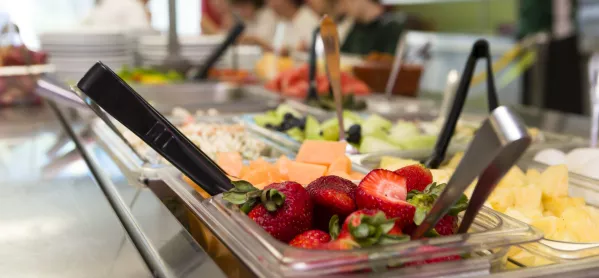Many children who are entitled to free school meals are not taking them every day, according to research.
The Scottish poverty and inequality research unit at Glasgow Caledonian University (GCU) found that around a quarter of the children registered for free meals in primary schools do not tend to have one. The proportion is even higher among secondary school pupils.
Research commissioned by the Association of Facilities Managers (Assist FM), whose members include every Scottish local authority school meals provider, showed that many children in schools were missing out on meals, with particular concerns over those entitled to free meals.
Free school meals: Children ‘embarrassed’ by restrictions
Quick read: Smoothies banned as part of school meal shake-up
Investigation: Bakes for breakfast: ‘the reality’ of school food
Interview: ‘Get over any sentimental feelings for pink custard or rice pudding’
Background: Snacks sold by schools ‘undermine healthy lunches’
Jayne Jones, national chair of Assist FM, said the research raised “some very important issues”, adding that “there are areas that we need to explore further, such as what happens outside the school gate, as well as the support we need internally within schools to achieve better uptakes”.
All pupils in P1-3 in Scotland are entitled to a free school meal, with eligibility criteria applied for older pupils.
The report was compiled by poverty expert Professor John McKendrick and colleagues at GCU.
It suggests that some practices in schools may work against increasing the uptake of school meals, including allowing students to eat food brought in from outside the school into dining halls and failing to introduce staggered lunch breaks to extend capacity.
The report also found anecdotal evidence that new school builds and redevelopment had reduced the capacity to deliver school meals at lunchtime.
A Scottish government spokesman said: “Access to healthy and nutritious school meals is essential, given the clear benefits for pupils’ learning and health.
“Free school meals provide much-needed support and assistance, saving families on average £400 a child per year.”
A spokesperson for the local authorities’ body Cosla said: “It is important that we continue to work to remove any potential or perceived barriers to the uptake of school meals across the board.
“It should also be noted that most local authorities are now providing food and activities outside of normal school hours, including before and after school and in the school holidays.”




